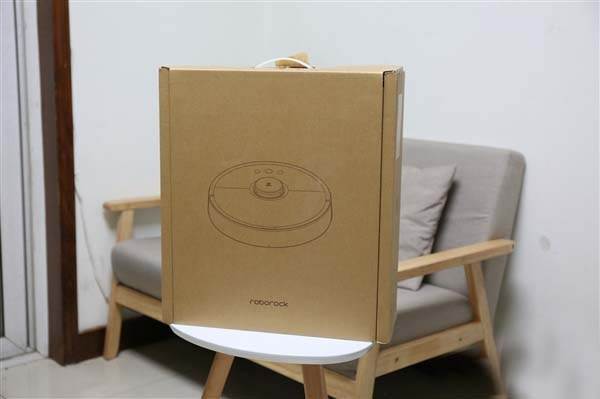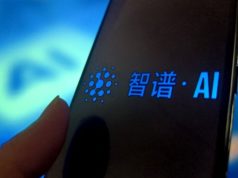The first-gen Xiaomi Mi Robot Vacuum was launched last year providing an excellent performance and coming at an affordable price. Two reasons why the market wowed when it was officially unveiled. It even won the IF Design Award like many Xiaomi products including the Xiaomi Mi Band 2 and Xiaomi M365 Folding Electric Scooter. However, it couldn’t lack some shortcomings concerning the cleaning area, the dead ends, passing obstacles and other issues. But even with the presence of these problems the Xiaomi Mi Robot Vacuum was considered as one of the best models in the market. That’s why people were waiting for its successor crossing fingers. We have been waiting for it to come in summer, but something happened and its launch date was pushed back to September. On September 19 one of the Xiaomi sub-brands released the second-gen Xiaomi vacuum cleaner. It was named the Roborock Sweep One. It came with a list of improvements as well as a few new functions.
Read: Xiaomi Mi Vacuum Cleaner Review
Buy: Xiaomi Mi Vacuum Cleaner for $309.99
Xiaomi always comes with packages using minimalistic design. This product is no exception.
The front side of the box carries only the sketch of the product and the name of the manufacturer.
On the opposite side, there is a sticker with the main information concerning this cleaner say the product weight of 3.5kg and a few enhancements we’ll talk about later.
Read: Roborock Sweep One Unboxing
The first thing we see when the box is opened is the user manual.
One of the main innovations in this model is the use of a new plant bionic wet drag system. The filter automatically absorbs water in a required quantity. So the mop maintains an adequate water content while filtering impurities in the water.
In comparison to the first-gen model, the Roborock Sweep One comes with an increased identification area. Moreover, the two horizontal charging docks have been replaced with two small contacts.
It looks like the previous model. Only a few changes have been done. The cleaner comes with dimensions of 353 x 350 x 96.5mm. Its predecessor did with dimensions of 345 x 345 x 96mm. Thus it’s a bit larger and higher. This is due to more sensors.
The LDS laser is located on the top along with the pressure sensor. The former one is capable of scanning the room at 5 x 360 ° / sec. The SLAM algorithm is used to build the room map in real time and plan the first Z-shaped sweep path. Plus, the cleaner features a new omnidirectional pressure sensor that senses a slight collision and prevents it.
Now there are three keys on the top instead of two found on the first model. From left to right, they are the local cleaning, switch/start, and back to charge. You can also hold the first and third keys to reset WiFi.
Once the cover is opened we can see the main brush, dust boxes, and WiFi lights.
The wall sensor is on the right.
The second-gen cleaner adopts the ST-method of the TOF range module. In comparison to the distance measuring infrared module, the new sensor can realize precision ranging in millimeters. So it can keep the proper distance from the wall when cleaning.
Almost half of the bottom side carries sensors and different parts. The second half ‘belongs to’ the muffle tank.
One of the main upgrades in this model refers to the water tank and its installation. Now you don’t have to flip the body – the tank can be inserted at the bottom of the machine.
This is the main brush of the Roborock Sweep One.
It can be removed easily.
The roller is placed between two charging contacts.
This model still uses the same cliff sensor.
Thanks to new wheels the Roborock Sweep One can pass through protrusions at up to 2cm height.
Both models come with a 2.4G WiFi support. This feature is used to connect to the APP. The latter provides easier and more comfortable way of controlling. In this sense, the Roborock Sweep One acts identically to the Xiaomi Mi Robot Vacuum. The only differences refer to the cleaning area and two new features added to the existing ones.
Cleaning process
As we said, there is a special algorithm that will tell the cleaner what path it should clean the room on. If you do not know how to set a new path or you don’t need it, just press the start icon on the app and the Roborock Sweep One will start the work itself. Moreover, the path will be displayed on your phone synchronously.
For example, this room is 17sm. The cleaning was done in 16 minutes. The power status reduced from 64% to 50%. Moreover, all the doors, tables and other obstacles were identified and drawn clearly.
Cleaning capacity/mopping experience
To test this feature we scattered rice (10g) on the ground of an area of 150x150cm.
The dust box is about 158.1 grams before the test begins.
We specify the area that should be cleaned via the APP.
The APP displays the cleaning path once it’s done.
After the cleaning, the dust box weighs 168.8 grams.
Anti-drop and anti-winding test
We put the cleaner on a table. The test lasted 20 minutes, but the Roborock Sweep One didn’t fall. The sensors worked very accurately.
Though a cotton line was wrapped around the brush for a few times, it didn’t prevent the wheel to rotate.
Noise test
There are four suction modes. The lower the suction mode is the lower noise it makes.
Here are the differences between the lowest and maximum modes.
Generally, the Roborock Sweep One is programmed in the way to get charged every time once a cleaning task is complete. But we decided to disable this function in order to test its endurance. The remaining power was 100%. The cleaner worked for 114 minutes and cleaned an area of 128sm. But there was still remaining a power of 20%.
As for charging, we let the cleaner to go to the charger when there was remaining power of 19%. It took about 169 minutes to charge the 5200mAh battery fully.
There are too many robot cleaners in the market, but most of them have real problems concerning the cleaning area, overcoming obstacles, and providing good cleaning experience. In this sense, the first-gen Xiaomi Mi Robot Vacuum has too many rivals. With the launch of the Roborock Sweep One the company tries to become a sole leader in the market. Though this model costs more (2499 yuan ($380)), it’s still best option you should look forward.







